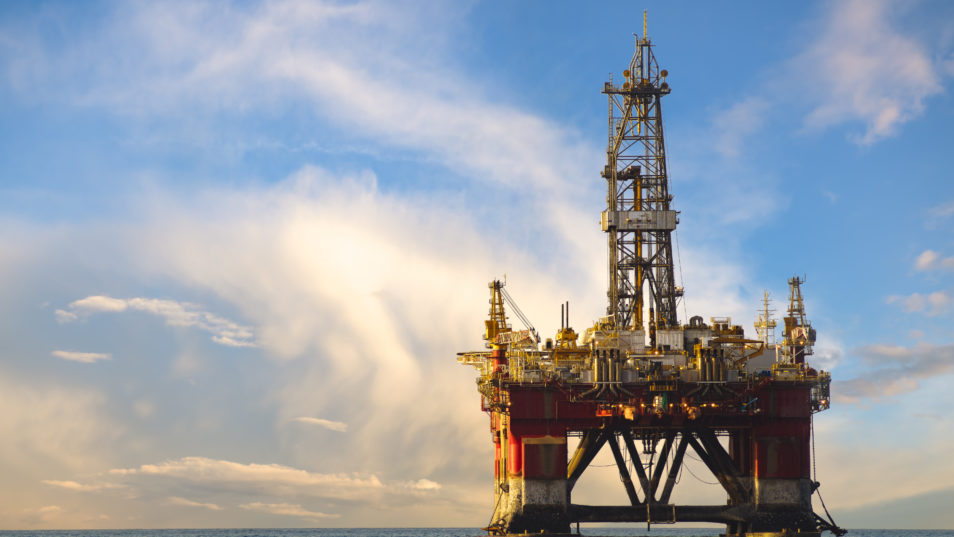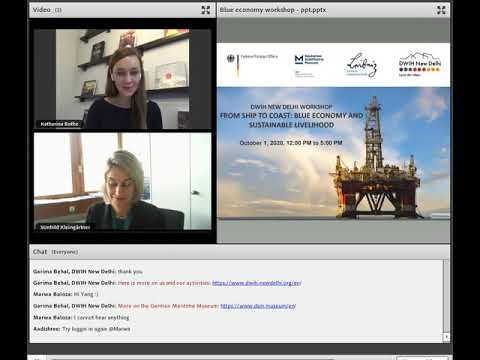From Ship to Coast: Blue Economy and Sustainable Livelihood
 © iStockphoto
© iStockphoto
On 1st October 2020, this closed workshop, conducted jointly by the DWIH New Delhi and the German Maritime Museum-Leibniz Institute for Maritime History, aims to bring together researchers from India and Germany to engage them in an interdisciplinary discussion on topics concerning blue economy.
‘The role of research in fostering sustainability in the blue economy' | keynote by Prof. Dr. Michael Flitner, Chair of the artec Sustainability Research Centre, University of Bremen

To play the video, click the thumbnail. Once activated data will be transmitted to the respective provider. Watch on YouTube
Concept
2020 was slated to be the year of the oceans, appropriately acknowledging a decade that will increasingly see states attempting to create value from maritime resources. Already, the oceans feed nearly half the world’s population and add USD 3 trillion to the economy every year. Shipping carries 90 per cent of world trade and is the most energy efficient mode of transportation. Worldwide, ocean linked industries also create up to 31 million full time jobs. However, a range of human behavior continues to exacerbate damage to maritime environments, communities, and actors.
Many coastal areas suffer from climate change and are under threat from pollution, as well as the over-harvesting of marine resources. Beyond the environmental imperatives, it is essential for the international community to commit to and agenda that prioritizes social inclusion and economic prosperity for all. Un-regulated economic growth continues to lead to increasing inequality, elite capture, abuse of workers’ rights, and the marginalisation of local communities. As ocean-based activities are an important workspace, creating jobs and opportunities in a diverse array of sectors such as shipping, tourism, cruises, fisheries, and renewable energy, more attention is needed to ensure decent work, living wages, and responsible production and consumption practices. Indeed, the blue economy has acquired importance in realizing almost each of the 17 sustainable development goals. As the oceans increasingly command international attention, it is imperative for scholars to examine the blue economy in the light of the SDGs. There is a need to not only raise public awareness but to also mobilize a cross sectoral community from government, business, civil society, and international organizations to fast track research in this domain.
Responding to these realities, this 1-day closed online workshop, organized by the DWIH New Delhi and the German Maritime Museum, aims to bring together researchers from India and from Germany to engage them in an interdisciplinary discussion on what will undoubtably be the decade of the oceans.
Objectives: The intention of the workshop is to identify and prioritize short-term and long-term issues and corresponding areas of research on the following themes. It is also intended to discuss, discover and amplify good practices, methods and tools for science communication. Members of the workshop will produce a future research blueprint, including one brief flagship joint report.
Themes:
1. Social Protection and Inclusive Growth: Towards a “Community First” Blue Economy
This track will explore how coastal communities can be given a concrete stake in the sustainable management of the ocean’s resources and ocean linked enterprises. As global inequalities increase, this theme will look at how local jobs can be secured to improve coastal livelihoods and how new and reformed social protection and safety bets can be arranged. Post the pandemic, this will be imperative for government, businesses and people and needs to part of any effort to rebuild the economy.
2. Coastal communities, Infrastructures and Climate change
Coastal communities are vulnerable to climate change are often the most innovative and effective in adapting to it. This track will focus on studying grass-roots efforts that respond to climate change, amplify successfully local adaptation initiatives and provide a platform for job creation. It will discuss ways and means to devise a green stimulus for coastal infrastructure, maritime development activities and port and shipping businesses. It will look at various sources of funds and investments, global best practices and local traditions for this new green design.
3. Gender and the Blue Economy
This session will focus on how to guarantee better equity and participation for women in the blue economy and all ocean-related activities including research, management and policy making. For example, while women play a pivotal role in fisheries, they are often found in the lowest social position. This track will examine how local policies, skilling and literacy initiatives, empowerment through technology and digital connectivity can catalyze women participation in the workforce and women led enterprises. It will discuss legislative means and fiscal incentives that can be catalyze a gender first development agenda.
Participants and Application details
Participants: Researchers with an interest in the topic of blue economy and sustainable livelihood from India and Germany. Participants have been selected from disciplines covering natural sciences, social sciences and humanities
Number of participants: 20-25
Application: Applications for the workshop are now closed. In case of questions or concerns, please send an email to info@dwih-newdelhi.org
About the German Maritime Museum / Leibniz Institute for Maritime History:
The German Maritime Museum / Leibniz Institute for Maritime History in Bremerhaven has set itself the task of exploring the relationship between man and sea and making it possible to experience it in exhibitions. It is one of eight Leibniz research museums in Germany and is one of the largest maritime museums in Europe. Research projects at the German Maritime Museum / Leibniz Institute for Maritime History are supported by renowned national and international funding programmes. For more information: www.dsm.museum/en
Event Information
October 1, 2020, 12:00 PM to 5:00 PM
Online
Organizer(s): DWIH New Delhi, German Maritime Museum/ Leibniz Institute for Maritime History
